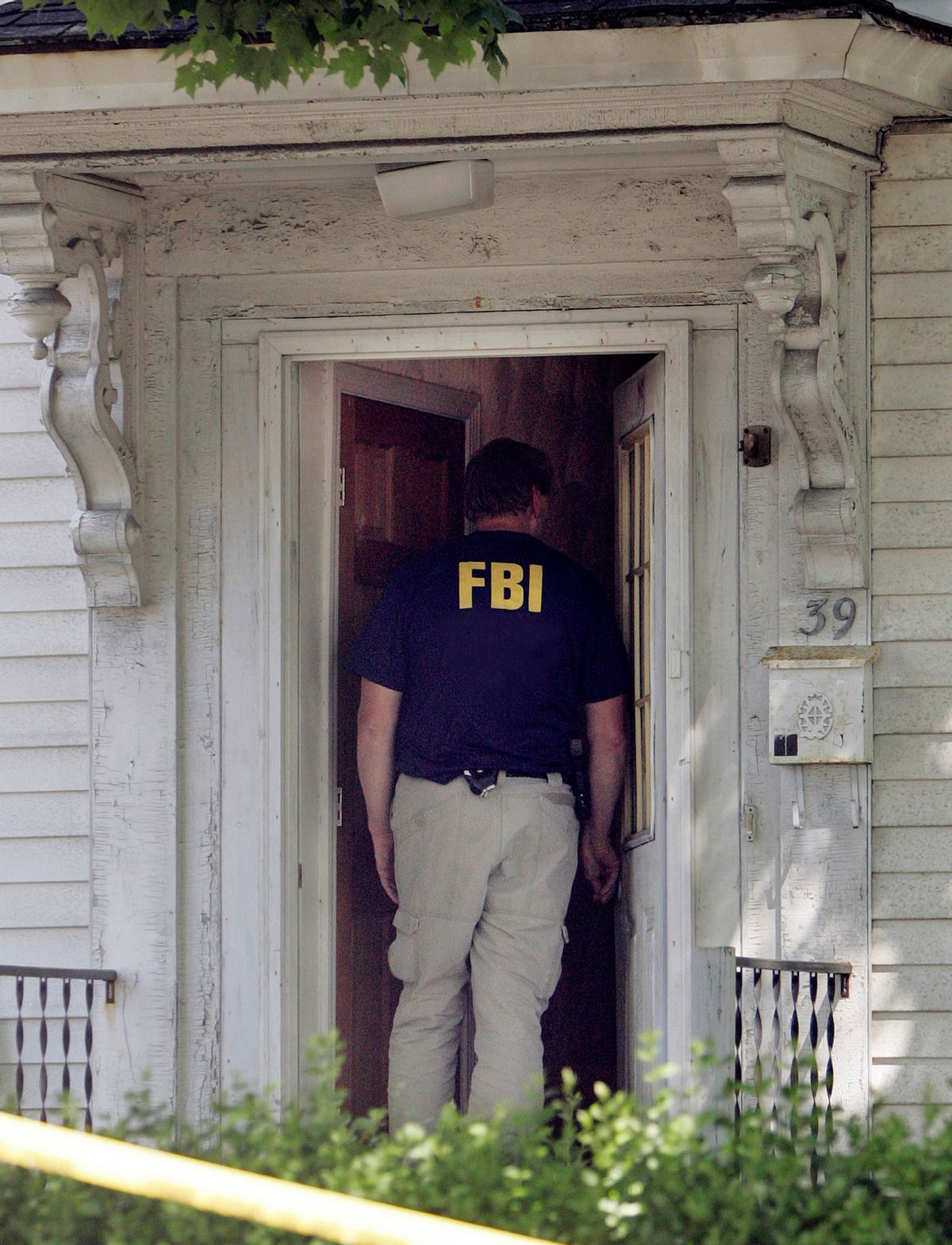 Four of five self-proclaimed anarchists – calling themselves the Revolutionary People’s Party – have now confessed to involvement in a conspiracy in late April to use C-4 explosives to blow up an interstate highway bridge near Cleveland.
Four of five self-proclaimed anarchists – calling themselves the Revolutionary People’s Party – have now confessed to involvement in a conspiracy in late April to use C-4 explosives to blow up an interstate highway bridge near Cleveland.
After their arrests, most of the suspects quickly agreed to discuss their plans with FBI agents during middle-of-the-night interviews. One of the would-be bombers said he just wanted to go to sleep and forget everything, court documents disclose.
Douglas L. Wright, 26, of Indianapolis; Brandon L. Baxter, 20, of Lakewood, Ohio; and Connor C. Stevens, 20, of Berea, Ohio, all pleaded guilty Tuesday in U.S. district court in Cleveland. Each admitted conspiring to use a weapon of mass destruction, attempted use of a weapon of mass destruction, and attempted use of an explosive device to destroy property used in interstate commerce.
A fourth defendant, Anthony M. Hayne, 35, of Cleveland, pleaded guilty to those same charges on July 25, agreeing to become a prosecution witnesses against his co-defendants if they took their cases to trial. They, in turn, entered into plea negotiations with federal prosecutors, leading to Tuesday’s pleas. Dates for sentencing haven’t been set, but the defendants likely will face substantial prison time.
The pleas leave just one defendant, Joshua Stafford, 23, of Cleveland, whose case will be scheduled for trial separately after a court-ordered evaluation is completed.
The five were arrested April 30, just hours before their planned act of terrorism was to coincide with May 1 anti-government, anti-establishment protests planned in Cleveland and other U.S. cities. The C-4 explosive devices, which were inert, were purchased by the suspects the day before their arrests from a man who turned out to be an undercover FBI agent, according to court documents. The FBI said the public was never in danger.
“We are pleased these defendants have admitted to their intent to utilize violence, which threatened innocent citizens, to further their ideological views,” FBI Special Agent in Charge Stephen Anthony said. “The safety of our citizens is and continues to be the FBI’s primary focus as demonstrated by this investigation. The Joint Terrorism Task Force will continue to be vigilant in our efforts to detect and disrupt any terrorism threat, domestic or international.”
After Hayne’s guilty plea in July, defense attorneys for the remaining defendants indicated they would offer an entrapment defense. Stevens’ attorney filed a motion to block the prosecution’s use of statements made by the defendants following their arrests. Court documents show Wright’s attorney also filed a motion for a separate trial based in part on those incriminating statements.
Federal prosecutors countered, filing documents indicating they planned to use post-arrest statements if the cases went to trial. Those documents include excerpts of statements made by the defendants.
“Honestly, the intent was to bring the bridge down,” Baxter told FBI agents, according to one government document. “I didn’t think there was enough (C-4) to do it. I just wanted to have it shut down for a few days. Stop, uh, flow of money for a few days from that area.”
The plotters intended to use a mobile phone to detonate two four-pound boxes of C-4 – a military-grade explosive – that were placed at the base of the Route 82 bridge crossing the Cuyahoga Valley National Park, south of downtown Cleveland.
The anarchists initially discussed using smoke grenades to distract law enforcement while co-conspirators would use explosives to topple signs atop high-rise financial institutions in downtown Cleveland. They also discussed bombing a Ku Klux Klan gathering spot or a Federal Reserve Bank.
The defendants apparently formed the Revolutionary People’s Party after they grew disappointed with the lack of action by people in the Occupy Movement, with whom they had been affiliated.
“I’ve been working with Occupy and it’s like I can’t even get them to do anything that would upset people,” Baxter told FBI agents, according to court documents. Those he met in the Occupy Movement, Baxter said, wouldn’t “disrupt traffic … do anything illegal. A lot of laws are, are ridiculous. Can’t even get people to jay walk half the time in a march, or take the march off the sidewalk into the street. It’s like, ridiculous.”
Baxter said at one point during his interview with the FBI that he thought about backing out of the plot, not for fear of causing casualties and damage, but because of the way the act of terrorism would be viewed.
“Yeah, [I] thought the corporate media would spin it as a bunch of crazy people who do what crazy people do, not as a, uh, politically driven thing.”
Stevens’ attorney argued for suppression of statements he made in a videotaped interview with agents, contending it was conducted under coercive conditions. But prosecutors countered by saying that wasn’t the case, that Stevens was given a blanket to get warm after his handcuffs were removed and later was allowed a cigarette and coffee break during the nearly four-hour interview with agents.
While being read his Miranda rights, Stevens told agents, “I feel like if I, if I exercise my right to remain silent, then I won’t be treated quite as kindly.”
To this, Special Agent Jared “Jake” Ruddy told the young anarchist he was “gonna have nothing but kindness from us. … We don’t operate any other way.”
To that, Stevens replied, “Well, I’ve been impressed so far, but –.”As he proceeded to read his advice of rights form, Stevens “teased” agents, referring to appointed defense attorneys as “public pretenders” and “kidding with the (FBI) agents about torture.”
Once Stevens agreed to answer questions, the FBI agent “asked what his initial thoughts were.” Stevens responded, “I just wanna go to sleep … and forget about everything.”



Shares